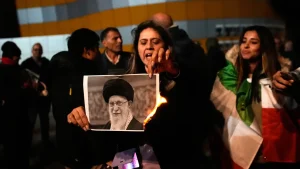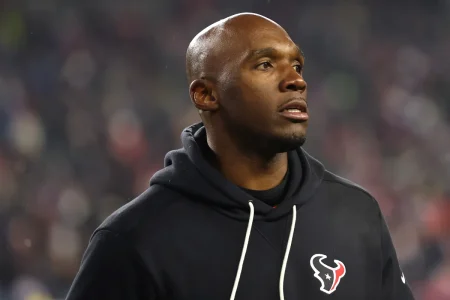The End of the World Panic: When Prophecies Go Viral
In a blend of ancient faith and modern viral media, a South African pastor named Joshua Mhlakela has captured international attention with his apocalyptic prophecy claiming the Rapture—the belief that faithful Christians will be suddenly taken to heaven—is scheduled for September 23-24, 2024. This prediction has ignited a social media storm, particularly on TikTok under #RaptureTok, where believers and skeptics alike have engaged in heated debate about the end of days. As some followers reportedly sell possessions and prepare for ascension, religious scholars and mainstream clergy have stepped forward to urge caution against such specific doomsday predictions.
The concept of the Rapture holds significant theological importance for many evangelical Christians, though it remains a point of interpretive debate. While the term “rapture” itself doesn’t appear in biblical text, the belief draws primarily from passages in 1 Thessalonians 4:16-17 and 1 Corinthians 15:51-52, which describe faithful believers being “caught up” to meet Christ in the air. Christians have long disagreed about the timing of such an event—some believe it precedes a period of global tribulation (pre-tribulationists), while others expect it after that period (post-tribulationists). What makes Mhlakela’s prediction particularly compelling for some believers is its connection to Rosh Hashanah, the Jewish New Year, which has long held eschatological significance in certain Christian interpretations of end-times prophecy.
Mhlakela’s conviction stems from what he describes as a personal divine encounter. In interviews with Centtwinz TV and on YouTube, he claimed that Jesus appeared to him and specifically revealed the date, stating he would “come to take my church” on these dates. “The Rapture is upon us. Whether you are ready or you are not ready, the rapture in 14 days from now is going to take place,” Mhlakela declared with absolute certainty. “There’s a storm brewing right now, and it’s dark. No human being on this earth is ready for what is coming. I’m a billion percent sure. I began to hear literally in my ear the sound of the trumpet.” Such vivid, first-person testimony has proven persuasive to those already inclined toward apocalyptic beliefs, especially when articulated with such unwavering confidence.
The digital spread of this prophecy exemplifies how traditional religious concepts now propagate through modern communication channels. Some TikTok creators have embraced the prediction wholeheartedly, pointing to what they interpret as confirmatory signs in Revelation 12 and astrological alignments involving the constellations Virgo and Leo. These believers see cosmic convergences that allegedly align with biblical prophecy, further validating Mhlakela’s vision in their eyes. Others, however, have approached the prediction with humor—such as TikTok creator Sonja (@sonj779), who posted “Rapture Trip Tips” encouraging viewers to buy new underwear for their heavenly journey, so their “last impression” isn’t an old pair. This mixture of sincere belief and satirical response reflects the broader cultural tension around apocalyptic predictions in contemporary society.
What makes this particular end-times prediction noteworthy isn’t its uniqueness—history is filled with failed doomsday forecasts—but rather how social media has amplified its reach and impact. The hashtag #RaptureTok has created a virtual community of believers sharing preparation advice, scriptural interpretations, and emotional testimonies about their readiness to leave Earth behind. For some, this online community reinforces belief; for others, it provides a space to process anxiety about global uncertainties through a religious framework. The phenomenon reveals how digital platforms can simultaneously strengthen religious convictions while also subjecting them to unprecedented levels of public scrutiny and sometimes ridicule, creating a complex landscape for faith expression in the 21st century.
As September 24 approaches and passes, this prophecy will likely join countless others in the long history of unfulfilled apocalyptic predictions. Yet the human impulse to seek definitive answers about the future—especially during times of global instability—remains a powerful force. While mainstream religious leaders consistently caution against setting specific dates for the end times (often citing biblical passages like Matthew 24:36, where Jesus states that “about that day or hour no one knows”), apocalyptic predictions continue to find receptive audiences. What this episode ultimately reveals isn’t just a theological disagreement but a profound human desire for certainty and meaning in an unpredictable world. Whether expressed through ancient religious texts or modern TikTok videos, the quest to understand what comes next remains one of humanity’s most enduring pursuits, even as specific predictions come and go without fulfillment.














